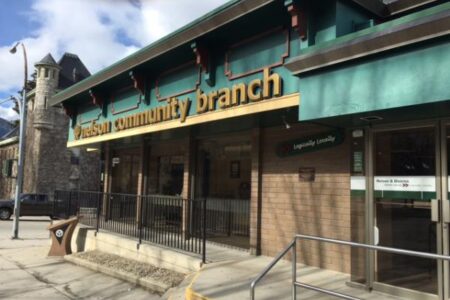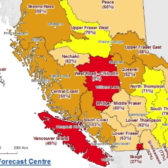City looks to province to begin solving short-term rental snag in the city
Dissatisfaction with the province’s rules regarding rental accommodations may have moved landlords into the short-term realm, but the rental crunch it has created as a result in Nelson has moved city council into the legal realm.
The city has asked the province to allow all residential tenancy disputes to go the efficient Civil Resolution Tribunal, rather than face the onerous and ponderous Residential Tenancy Branch’s justice system, as rental rates in the city edge near zero per cent.
According to the website, the tribunal only handles small claims and strata disputes and does not handle disputes which affect land.
City council passed a resolution asking the province, through the Union of B.C. Municipalities, to extend the powers of the Civil Resolution Tribunal to tenancy to “access to justice and increase convenience and efficiency in the resolution of strata disputes and small claims.”
Excessive wait times for a dispute resolution were cited by landlords as a significant barrier to equality of access to justice and justified the move to short-term vacation rentals, depleting an already strained rental market in Nelson that currently sits near zero.
After a recent investigation into short-term vacation rentals (STR) city staff found numerous STR operators were former landlords “who have become disillusioned with long-term tenants and the inability to receive justice under the Residential Tenancy Branch.”
In some cases, the report stated, some landlords have illegally evicted their previous tenants.
It was found that out of 27 survey responses from short-term rental operators in the city, there were seven people who admitted primary motivation for renting short-term was a previous negative experience as a landlord — with tenants and with the provincial Residential Tenancy Branch.
Another complaint was the inability to collect on monetary judgments if tenants leave the province.
“The lack of efficient recourse tools and enforcement of any resulting judgment appears to be an explicit cause of the depletion of the rental market,” the city report stated. “Many landlords see no reason to continue.”
One short-term rental operator described “Airbnb” — one of the major providers of the online short-term rental service — as “better quality renters, fewer headaches, better money (almost double money). And I retain control of how my rentals are furnished and look which prevents them from becoming run-down.”
However, the rights of tenants are not served by the tenancy dispute resolution system currently in place, the report continued, with evictions due to conversion from rental to short-term rental have occurred in the city.
Although evictions for the purpose of converting to short-term rental are prohibited by provincial law, the tenant’s plight is difficult and costly both in terms of time and money to fight the move.
“With a reportedly long backlog of two to three months, tenants are faced with the impossibility of enforcing their rights before being evicted,” the report stated.
But the province’s Civil Resolution Tribunal is a web-based, “24/7” dispute resolution system expected to handle dispute resolution for small claims of up to $25,000 as well as strata disputes.
It is heralded to give people a choice on how, when and where to resolve disputes — when it launches later this year — and will improve access to justice in resolution of disputes “fairly, quickly and affordably.”
But the service is not being made available to tenant-landlord disputes, even though many tenancy grievances are of a similar nature to strata disputes, “particularly when a tenant alleges an impending wrongful eviction or might relocate outside of the province to avoid enforcement.”
With more than 150 beds for rent at Airbnb for Nelson the service has become one of the largest providers of short-term accommodation in the city.
But the unregulated, unlicensed accommodation providers have several advantages over licensed business: less overhead, less red tape, lower safety standards, less insurance.
One man and his family affected by the proliferation of Airbnb’s in Nelson — who appeared before council in April on the issue — said families and low wage earners are moving away from town because they can’t afford to live here.
In 2012 the UBCM adopted a resolution to “increase effectiveness and accessibility of the residential tenancy dispute resolutions process.” At that time, the minister responsible for Housing indicated that the “province has no plans to change the enforcement process” and that the current Residential Tenancy Act sufficed.
“This resolution recommendation represents only one piece of re-incentivizing tenancy in a changing economy,” wrote city manager of development services, Pam Mierau, in the report to council.
Like short-term rental regulation, incentivizing is only one policy update required to sustain and replenish Nelson’s rental stock, she stated.
The resolution will now be carried forth to the UBCM annual general meeting for provincial-level debate, held in Victoria from Sept. 28-30.

























